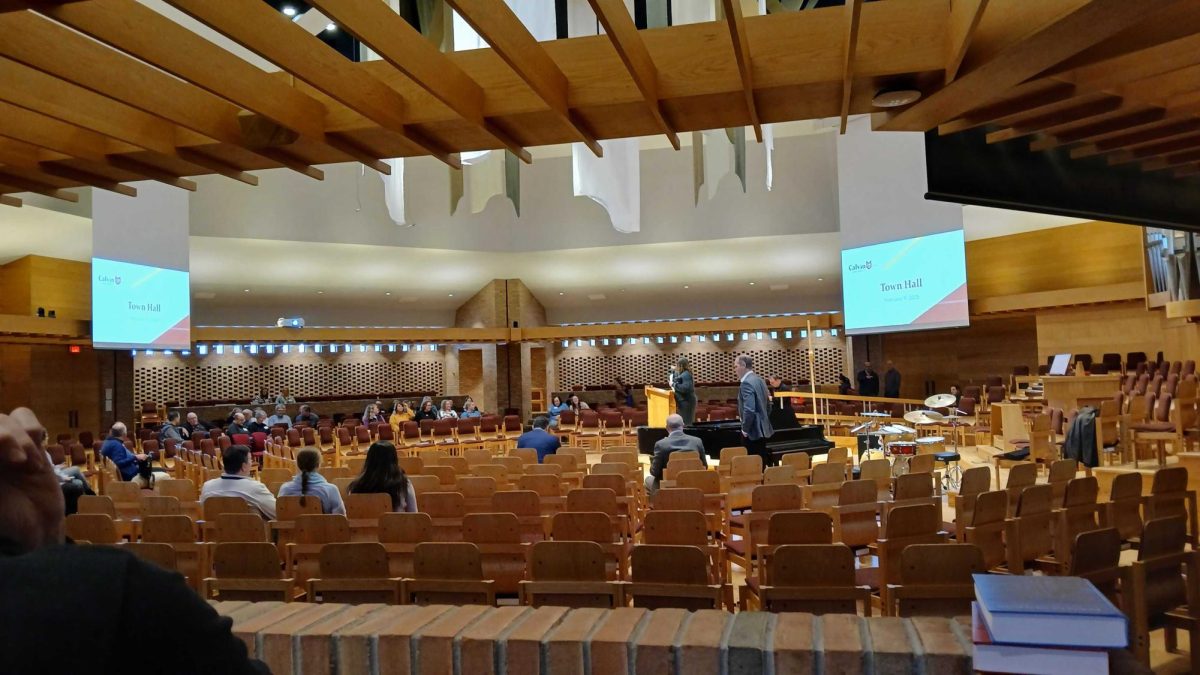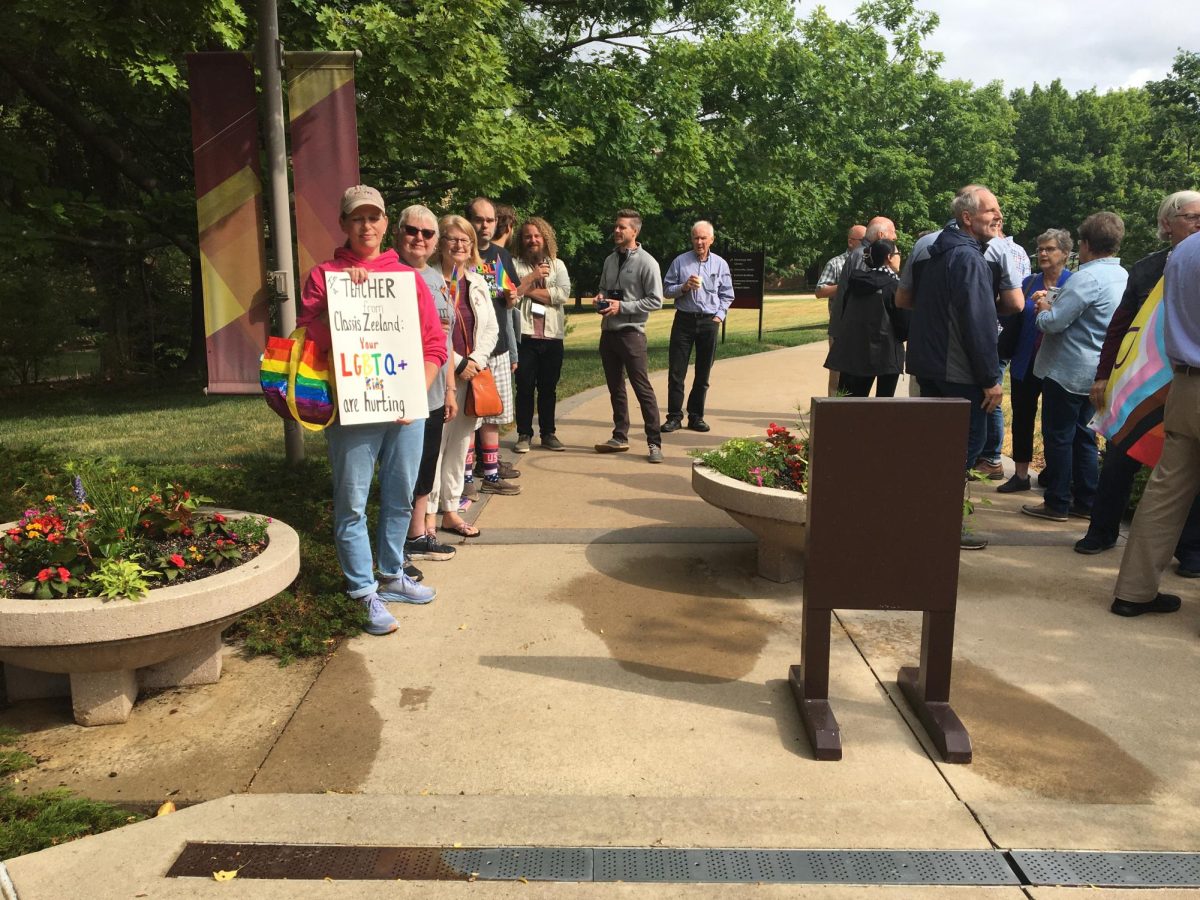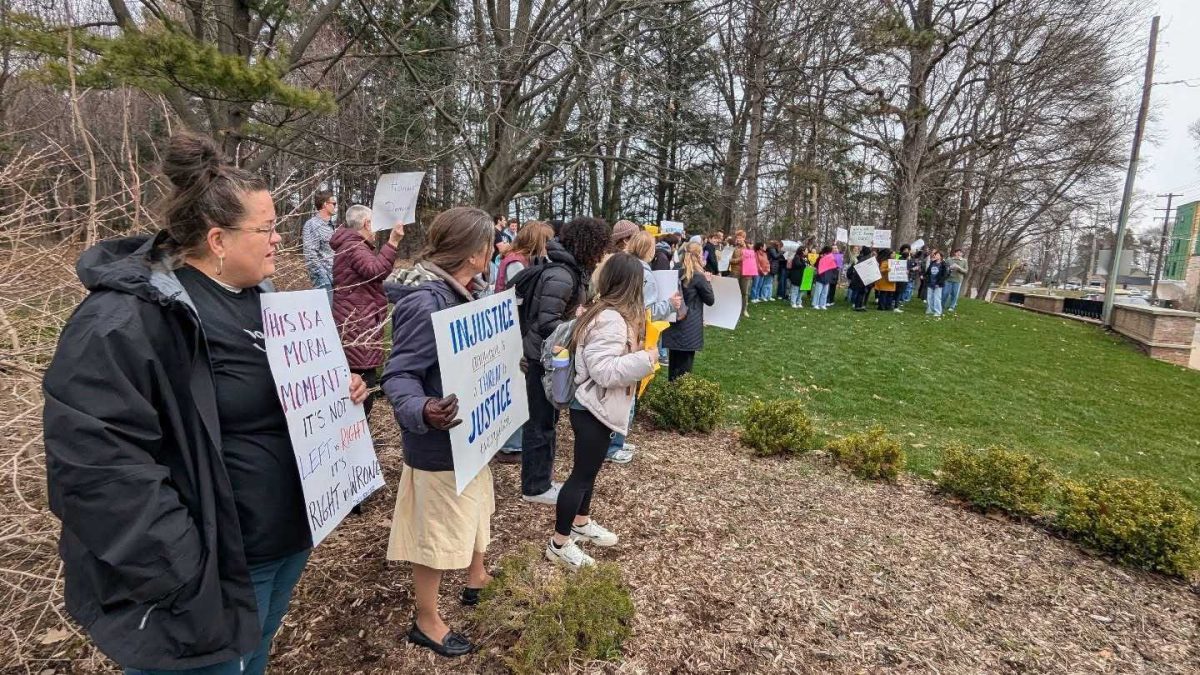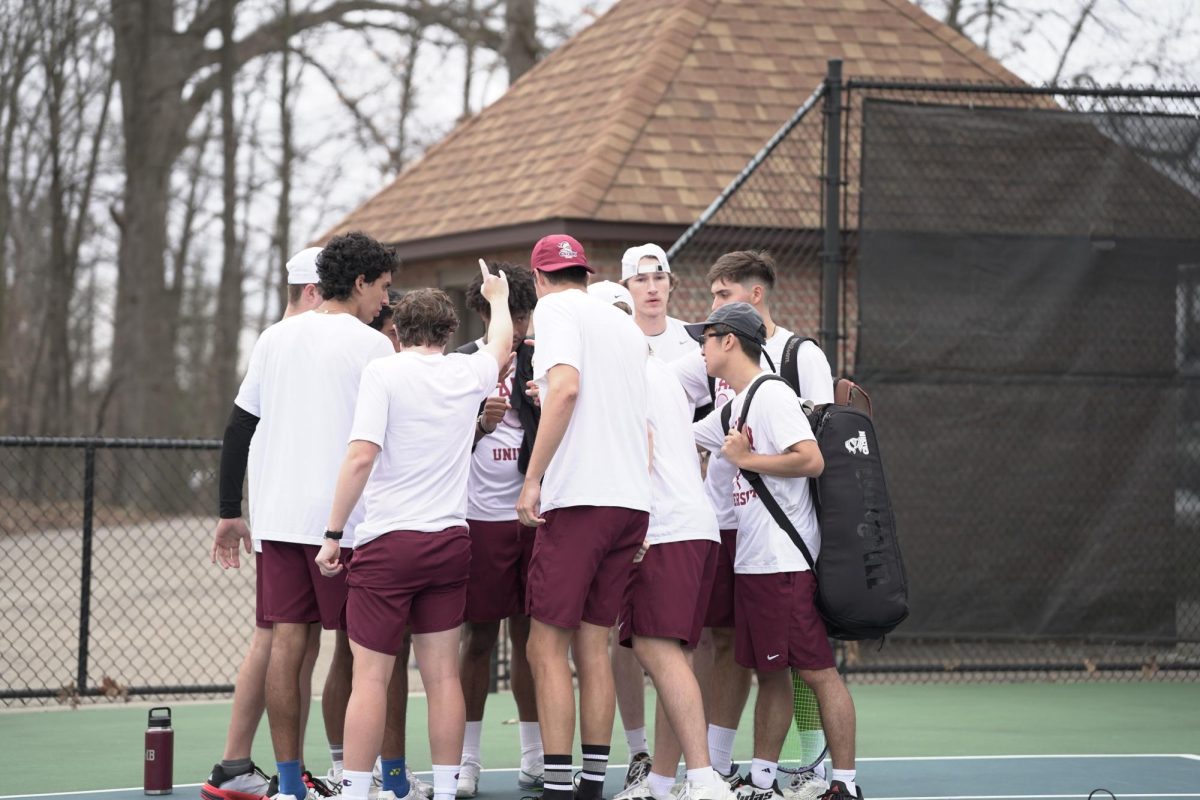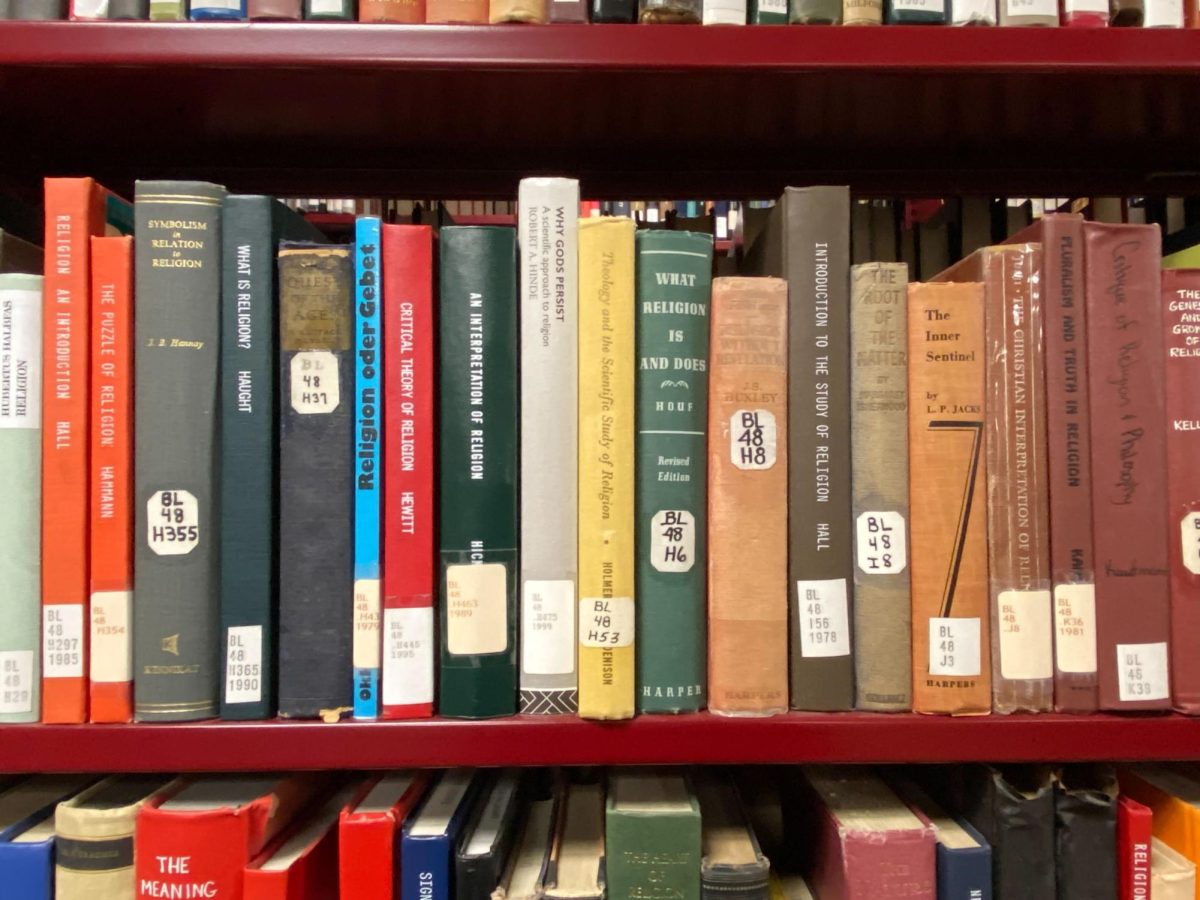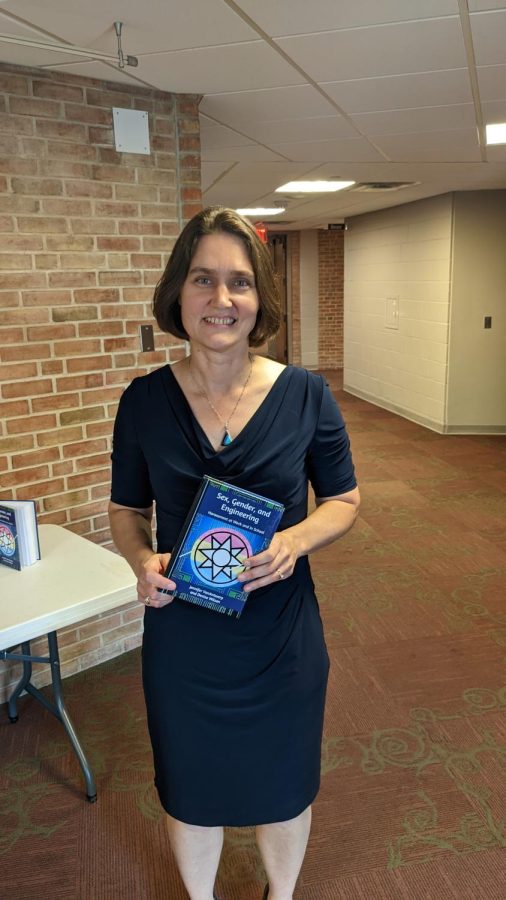“I’m the guy who has no answers for you,” Board of Trustees (BOT) member Perrin Rynders announced to the group of faculty and staff assembled in the chapel sanctuary. The group, which had come to hear an update on the January BOT meeting, chuckled briefly.
Speakers at the town hall gave lengthy and detailed descriptions of where the university stands financially, how enrollment numbers look for the fall 2026 semester and the results of President Greg Elzinga’s recent trip to several cities in Ghana and Nigeria.
However, one issue was less clearly resolved: how the implications of decisions at Synod 2024 will play out for faculty at Calvin. In June of 2024, the governing body of the Christian Reformed Church in North America (CRCNA) requested that university administrators define the gravamen process for its faculty, and “develop language and processes” that maintain alignment on the CRCNA’s positions, most notably those around LGBTQ+ relationships. Gravamen are official means by which people in the church can register their disagreements or difficulties with specific parts of church doctrine.
Synod’s move has some history. In 2020, nearly 150 faculty members signed a letter expressing “grave concerns” about church policy regarding the denomination’s Human Sexuality Report (HSR). Within a Calvin-specific context, those faculty were concerned about the document’s “potential impact on Calvin as a Christian liberal arts university.” In 2022, Synod formally decided to adopt the HSR. They also voted to affirm that the denomination’s stance against same-sex relationships had confessional status, meaning that all church officebearers are expected to uphold it. Calvin faculty are also expected to uphold the confessions of the CRCNA.
Synod 2024 gave the BOT until Synod 2025 to submit their report. With the deadline to add items to this year’s synod agenda set for March 15, the decisions left are “down to the nitty-gritty,” Rynders said. Out of the day and a half of in-person meetings with all BOT members, Rynders said the majority had to do with Calvin’s eventual response to Synod.
So far, Rynders said, the focus of the meetings has been on Calvin’s “bilateral relationship” with the denomination. While the BOT is still determining precisely how the university will align with Synod’s request, “confessional differences are not incompatible with our Reformed Christian mission,” Rynders said.
In a written statement to Chimes before the meeting, BOT chairman Bruce Los wrote: “While we recognize key differences between an academic institution and the church, we continue to affirm the CRCNA’s confessional standards and synodical interpretations as those of the university.”
Speaking before the town hall meeting, Frans van Liere, professor of history, told Chimes he had encountered a sweeping mood of uncertainty about the issue on campus. “I think it’s one of the things that is very much on our awareness and that I’m very concerned about. So I’m eager to hear … what the board has decided,” van Liere said.
For some, the continued lack of clarity after last week’s town hall has been frustrating. Professor of French Jolene Vos-Camy called the decision “another burden on morale.”
“I have heard stories already that Calvin will have trouble attracting professors even to go through the application process to become a professor because of this,” Vos-Camy told Chimes. “Even just getting great qualified professors through the door who otherwise would thrive here is definitely an obstacle.”
Loren Haarsma, a professor of physics who’s been at Calvin since 1999, said that it appears policy changes will not affect current faculty. “My understanding is that the current faculty who submitted a gravamen and had it approved by the processes — the Board and the processes that were in place in the past — that that will still be in place,” he said. “For myself and other existing faculty, I imagine that the administration will continue to show the kind of support that they have in the past.”
Haarsma said that current faculty were asked whether it would be alright if new faculty were held to different confessional standards. “The existing faculty said no,” Haarsma said. “We expect that new faculty would be welcomed and held to the same standards as existing faculty and not have a different set of standards applied to them.”
Although the BOT has not publicly announced its response to Synod, faculty senate has discussed some of the proposed solutions. “The new process, if I understand it correctly, if it goes in place as proposed, would sort of give them a certain amount of time to think through that and get to know Calvin, get to know the system a bit more before they have to then write that statement,” Haarsma said. “So it might feel like a bit more uncertainty in that a new faculty member doesn’t get a decision made early on. But on the other hand, having three years to think things through and think about how they want to phrase things and what exactly they want to say, if anything, actually can give them a bit more time.”
Vos-Camy said she had “limited confidence in the long-term plan” due to the annual synod making “new decisions every year.” Vos-Camy expressed that working under the Christian Reformed Church can be difficult, saying “there’s instability in the denominational structures that makes it very difficult for universities to work with it.” Furthermore, Vos-Camy elaborates that communication with faculty has been “limited” but understands that “for obvious reasons, they need to be discreet about what is public.”
Anyone who is a member of a CRCNA church can submit communications or requests for action to Synod 2025 by presenting a request to their church council for consideration.




